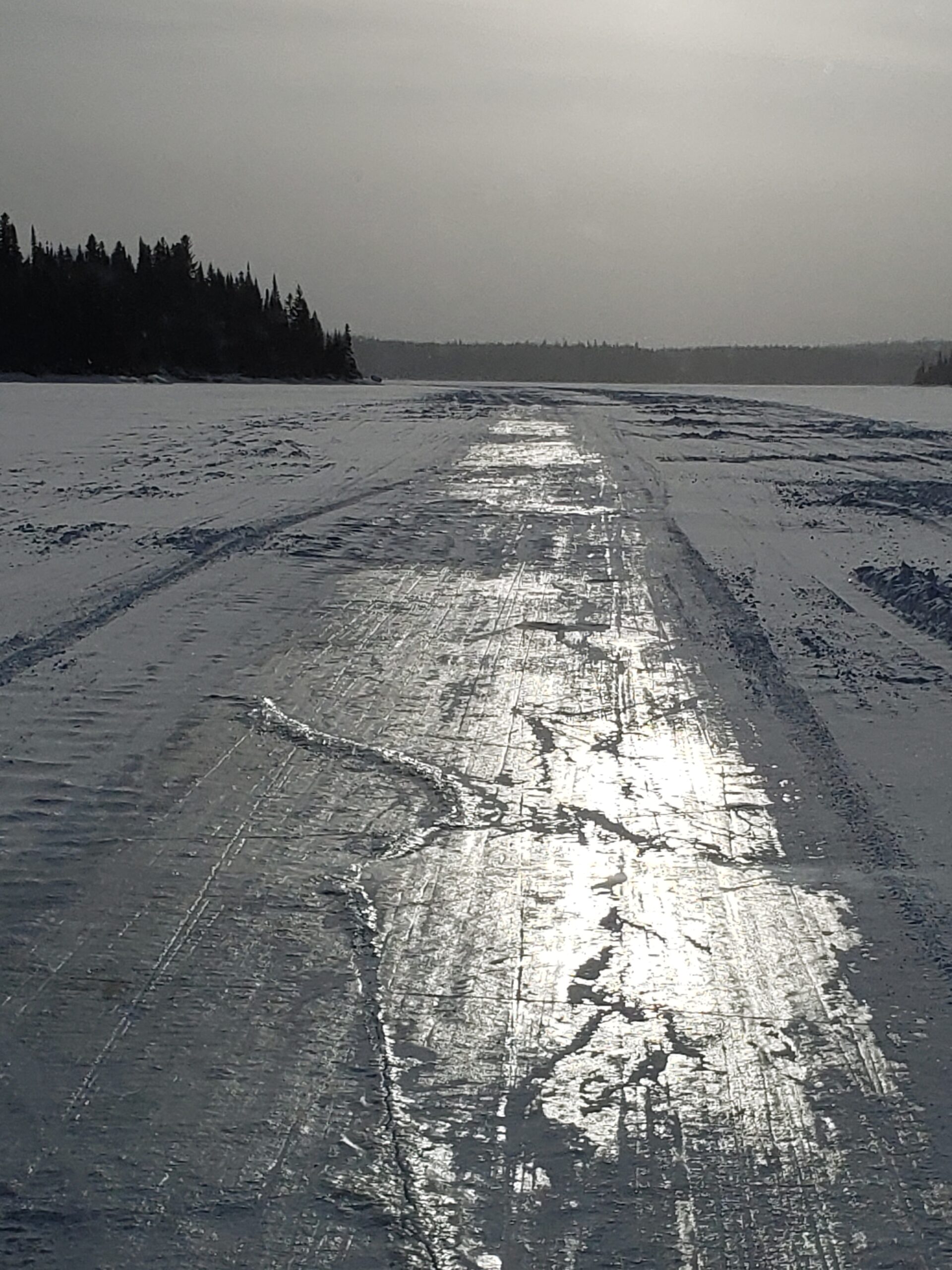This year, the final steps of the ‘Integrating Contemporary Technology and Traditional Knowledge to Reduce the Risks of Lake Ice Travel: Climate Adaptation’ project were completed. The project primarily took place in St. Theresa Point First Nation and was initiated in Wasagamack First Nation.
The project helped to increase awareness and an understanding of winter lake ice conditions and ice hazards in the Island Lakes, as well as how climate change exacerbates these issues. The project explored how employing modern technologies may allow the community to better plan for and adapt to present and future winter lake ice conditions.
The project team accomplished these goals through an adaptive project management process following a series of unforeseen circumstances, such as the COVID-19 pandemic, and community elections.
At this time, tools are being designed to provide timely cues to help community members adapt to ice road changes. These tools will assist in the ongoing monitoring of climate change abatement projects, and they will provide support for potential challenges. Additionally, these tools are intended to vary between locations and keep the interests of the individuals that the project is aiming to support.
The project team advises that additional time be spent within each community to nurture the project and ensure it becomes a project that people will want to invest energy and resources into. The project outcomes, such as surveys and interviews, suggested that ongoing efforts can provide a better understanding of the condition of the lake ice and winter ice road, and enable youth to better participate in climate adaptation and community ice practices.
The implementation of the satellite monitoring and climate adaptation approach proposed to the community could drastically improve their ability to safely receive goods and enable members to travel on the lake and ice road for other purposes, like fishing, hunting, and trapping.
The goal of continuously adapting and improving safety measures for community members requires each generation’s involvement. The project team found that the community’s youth may not be as aware of the risks of ice conditions, and so the use of an app will hopefully reach this age group.
CIER wishes to thank Doug Flett and the Waste Management Department at St. Theresa Point First Nation, and the Chief and Council of St. Theresa Point First Nation and Wasagamack First Nation for their dedication to the project throughout the unexpected delays.

Resource Request
